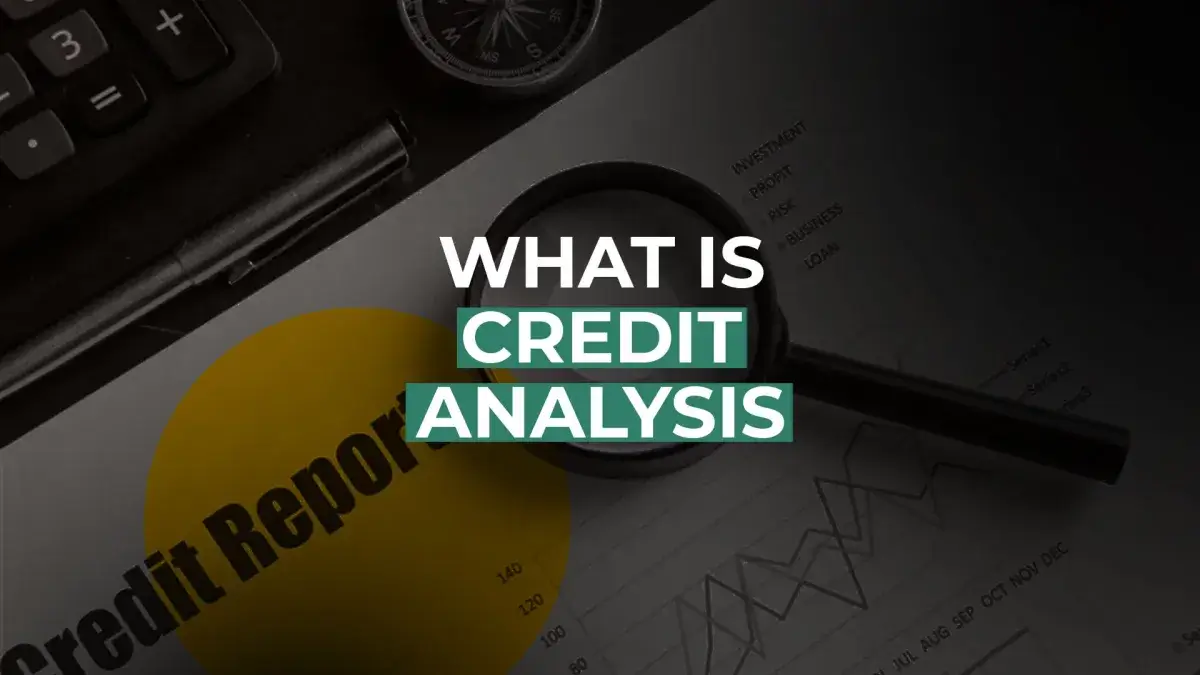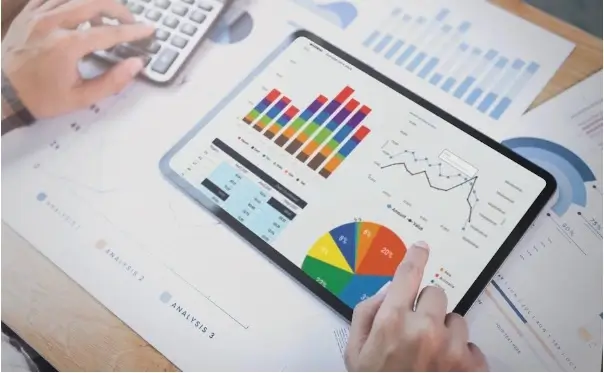What Is Credit Analysis? Its Importance And Career Scope

Here's What We've Covered!
Risk, whether it be a loss or an unpredictable event, is anything that can have an adverse impact on your investing selections in the realm of finance. Furthermore, the risk is not just something that people encounter. Businesses can also be in danger. Various factors, such as the entity assuming the risk, the sort of investment decision at issue, and others, might make some decisions significantly riskier than others.
This is where credit analysis enters. They study multiple variables and then decide if the risk is worth it or not. But obviously, it’s not that simple. Let us tell you all about credit analysis and how you can make a career in it.
What Is Credit Analysis?
Source: Freepik
The goal of a credit analysis is to determine the acceptable level of default risk connected to purchasing debt instruments from that specific firm. An investor or bond portfolio manager can perform a credit analysis.
Organisations that need these services are:
- Businesses
- Governments
- Municipalities
- Debt-issuing institutions
- Banks
Credit analysis is also used by:
- Creditors assess a company’s capacity to repay debts
- Creditors assess a person’s capacity to repay a loan or mortgage
- Investors assess the financial condition of a company
How Credit Analysis Works
Source: Freepik
Banks, bond investors, and analysts analyse a company’s credit to determine whether it can pay its debts. An analyst can assess a company’s capacity to meet its obligations using factors like:
- Financial ratios
- Cash flow analysis
- Trend analysis, and
- Financial projections
The creditworthiness of a business is also determined by looking at credit reports and any available collateral.
Depending on the results of the credit analysis, a risk rating will be given to either the loan issuer or the borrower. In turn, the risk rating determines whether to grant credit or make a loan to the borrowing business and, if so, how much.
It is like a detailed report that will answer the question of whether or not to grant the loan. Credit analysis is also used to predict when a bond issuer’s credit rating will change. An investor or manager might make a profit by speculating on debt rating changes by identifying enterprises that are about to occur.
But Why Is Credit Analysis So Important?
Source: Freepik
Effective credit analysis can reduce default risk and the likelihood that investors will suffer this kind of large loss event. Apart from the reasons stated earlier, here are some more reasons for its importance:
- Through a rise in consumption and the distribution of resources to productive uses, access to credit has aided GDP expansion.
- The modern economy and the global financial system both depend on credit. The evolution of the global economy has been significantly influenced by the expansion of credit, which is frequently referred to as the economy’s “lifeblood.”
- By allowing access to funds for things like expansions, capital spending, research and development, and staffing, it has also helped to increase the effectiveness and profitability of the company.
- Smart investors often do a credit study before buying corporate bonds to ascertain whether the company has the resources to meet its obligations.
- Investors in today’s world are unavoidably confronted by a massive number of possible bond offers from businesses looking for funding for various operations.
So you see, credit analysis is not just about providing a risk on loans or investments. It’s much more than that and certainly an important factor in the growth of a business or the country.
Now that you know why it is essential, you must have figured out that a career in this will be quite adventurous and beneficial. There are various financial courses that teach credit analysis. While you can take specialised courses that only teach credit analysis, you will want to keep your mind more open.
The finance sector is evolving rapidly. And mastering multiple skills is essential. Hence, to secure a great career in finance, you need to learn a lot of subjects, and just one of them is credit analysis.
Now, here’s a list of courses you can take that will teach you credit analysis and provide a strong foundation for your career in finance.
Courses AT IMS Proschool That Includes Credit Analysis In Their Curriculum
Business Analytics Course
IMS Proschool’s business analytics education equips you for entry-level Analytics MIS jobs with average CTCs of 4 Lacs. This 3-month program covers various necessary topics, including probability and distribution, sampling and related topics necessary for credit analysis.
This course also covers a broad range of topics, so you get access to over 100 curated analytics jobs.
The CFA program
The CFA program is a gold standard qualification in the finance world. A qualification with global recognition, this course also covers credit analysis. CFA is a course that you want to follow if you want to be among the top professionals in the finance world.
CFA charterholders are always welcomed in international finance institutes and are also always in high demand. Having the CFA qualification will help you get a high-paying job as well. The course material of this program is so well curated that you will be knowledgeable about every job in the finance sector.
PGCM Investment Banking and Capital Market (IBCM)
Among various topics covered in the PGCM Investment Banking and Capital Market by IMS Proschool, business analytics is one of them. The subject again briefly includes credit risk analysis.
The best feature of this course is that it is taught via active learning methods, just like all other courses by IMS Proschool. You learn by doing under the mentorship of industry professionals. This course has also got 100% placement for its last two batches. Since this course is conducted in association with AIMA, the final exam and certificates will be provided by AIMA themselves.
Financial Modelling Plus
This course backs you up with strong financial knowledge (also includes credit risk analysis) and prepares you for various high-calibre jobs in the industry. Not just that, this course by IMS Proschool is curated for people at different levels in the finance sector.
There are three different courses that range from 3 months to one year, depending on your expertise in the sector. The NSDC-approved certificate does wonders for boosting your resume and landing a job.
Certified Financial Planner (CFP)
When it comes to financial planning, there are CFP and CIP. CFA covers financial planning, while CIP covers investment planning. Both of these are great knowledge bases for credit analysis. These courses are specially designed for those who want to make careers in financial planning and wealth management.
They cover important topics like taxation, investment planning, asset management along with credit risk analysis. Most universal banks prefer candidates with either one of these certifications. So if you are aiming for a job globally, then this might be the course for you.
It is vital to consider factors like your current job situation, education level and course time to pick the best one for you. Each of these courses will teach you credit analysis, but they all have their own pros and importance in the industry. You can always take a demo class or speak to a counsellor to make an informed decision.
FAQs On Credit Analysis
Are there specific courses for Credit analysts?
Yes, there are also specific courses for credit analysts.
What is the expected CTC for credit analysts?
With an experience of less than a year to eight years, the average yearly salary for a credit analyst in India is 5.3 lakh rupees. It can range from ₹ 2.2 Lakhs to ₹ 13.1 Lakhs depending on your qualifications and skills.
Is a Credit Analyst a Good Job?
Many people are employed by financial institutions like banks or insurance firms. Working as a bond analyst for an asset manager, private equity firm, or rating agency like Moody’s or Standard & Poors, which assesses the riskiness of investing in a company or nation, is also in high demand.
It is a good job considering the new challenges and a work-life balance as well.
What is the difference between a credit analyst and a financial analyst?
Usually, financial institutions like banks or investment firms employ financial analysts. They might also work for businesses like software developers who offer services to financial institutions. Typically, credit analysers are employed by lenders like banks or mortgage firms.
The only difference between the two professions in terms of necessary skills is that while financial analysts are more focused on larger businesses, financial institutions, and market trends, credit analysts are more focused on individuals and smaller businesses. This is because decision-making skills are crucial in the financial world. Both disciplines require a solid foundation in analytics and a preference for solid, well-constructed research.
What makes a good credit analyst?
A credit analyst must possess a variety of skills, including financial analysis, multitasking, due diligence, and attention to detail, in order to efficiently carry out his or her duties. The abilities can be acquired through formal education or practical experience.
Conclusion
Credit analysis is one of the best career choices if you like studying data and are good with numbers. However, you do need a lot more than that.
Learning credit analysis through certified courses will prepare you with all those other necessary skills and make you job-ready.
Resent Post
>
Best Study Abroad Courses for Commerce Graduates
>
Emerging commerce career options in India (2026): From CA to Data Analyst
>
ACCA Opportunities You Didn’t Know About – Think Beyond Audit!
>
Which Courses After 12th Commerce With High Salary Are in Demand Worldwide?
>
How to Find ACCA Jobs Online After Qualifying: Real Portals, Tips & Career Guidance
Follow Us For All Updates!






